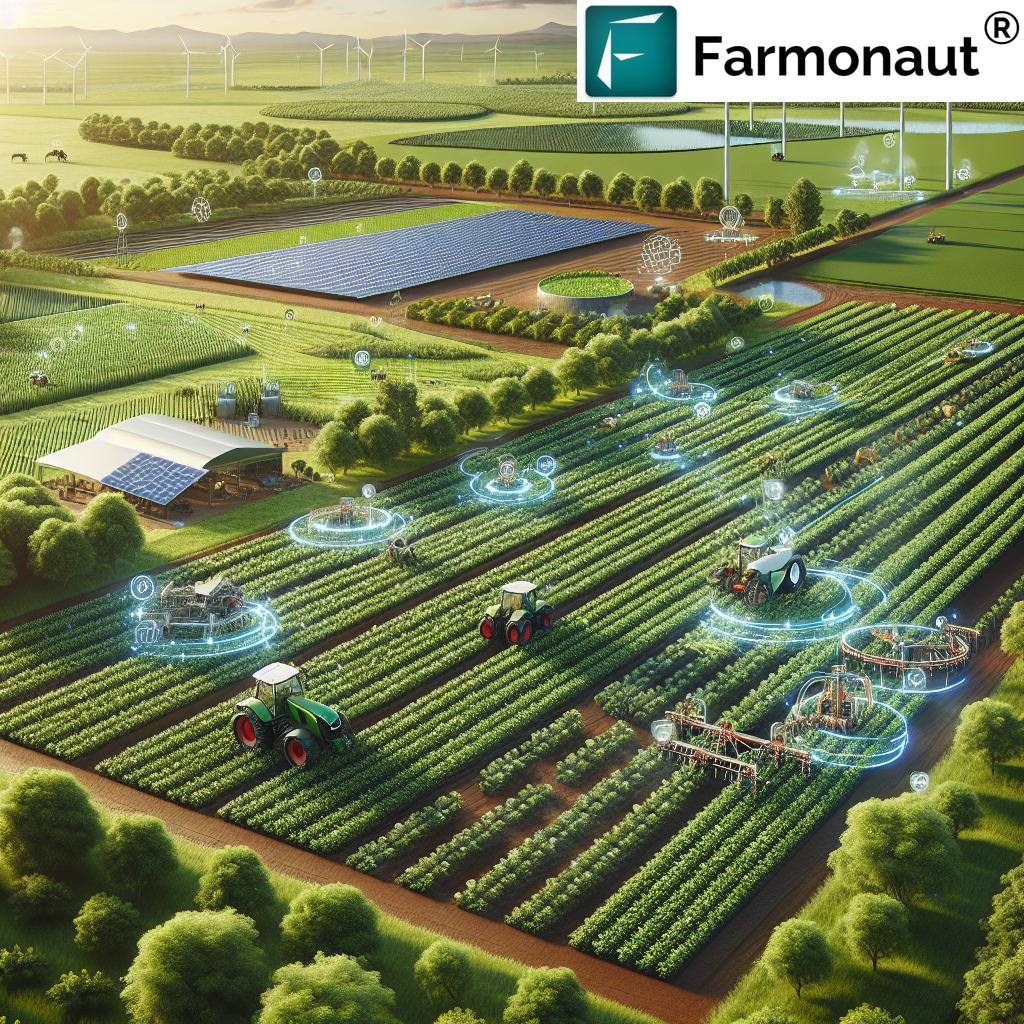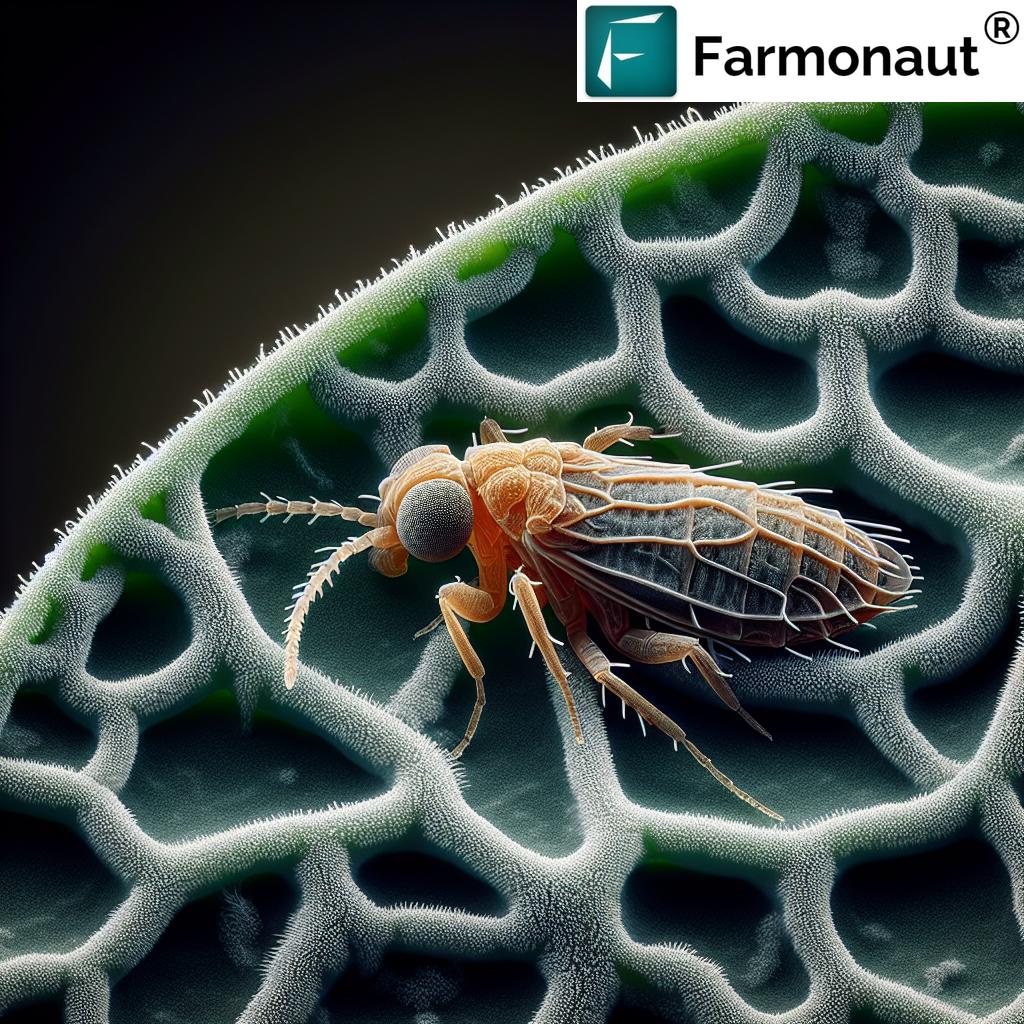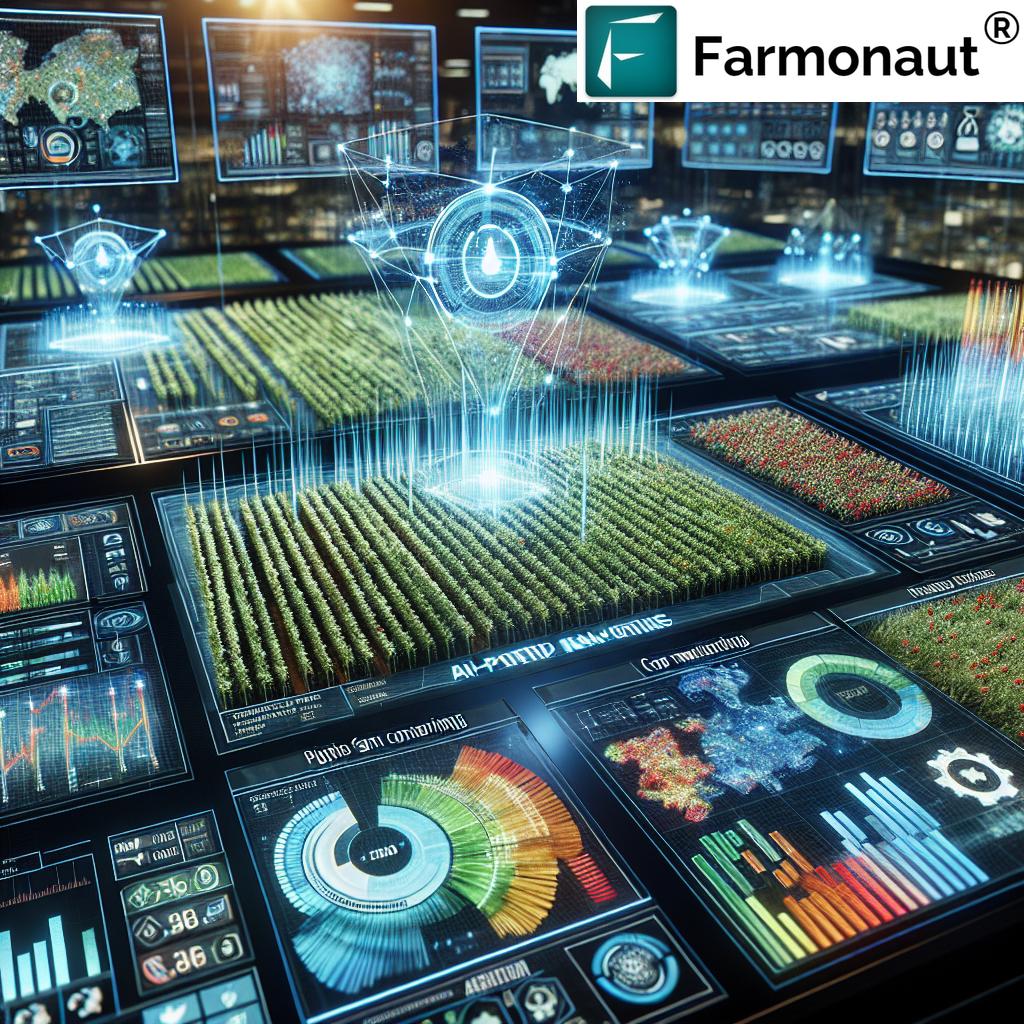Auto Steer Systems for Sale & Agricultural Management: How 2025 Precision Technologies Are Revolutionizing Modern Farming
Trivia Highlights
“Over 70% of modern farms will use auto steer systems for tractor guidance by 2025.”
Introduction
The agricultural sector is in the midst of an unprecedented transformation. As we enter 2025, the marriage between precision farming and technology is ushering in a new era for farmers, stakeholders, and the global food supply chain. Automation, artificial intelligence, data analytics, and remote sensing are no longer distant promises—they are the very foundation on which sustainable, efficient, and productive agriculture is being built. Central to this transformation are auto steer systems for sale, automated heat stress system solutions, and advanced agricultural management systems (AMS).
This comprehensive guide explores how these advanced technologies are revolutionizing modern farming, driving both efficiency and environmental stewardship at unprecedented levels. We’ll provide in-depth analysis of system functionalities, benefits, and integration strategies, giving both technology adopters and agricultural professionals insights into the latest best practices.
Farmonaut Web System Tutorial: Monitor Crops via Satellite & AI
Auto Steer Systems: Fundamentals & Advancements
Auto steer systems represent a major leap forward for precision farming. With rising production costs, increasing pressure to optimize inputs, and the imperative for environmental sustainability, the precision and automation provided by these systems have become essential to 21st century agriculture.
What are Auto Steer Systems?
Auto steer systems are automated guidance solutions that enable tractors and other farm machinery to navigate fields with centimeter-level accuracy. Using integrated GPS, GNSS, and advanced sensors, these systems minimize overlap in fieldwork, reducing fuel consumption, maximizing resource use, and promoting consistent operational patterns.
- Planting: Achieve precise seed placement and row spacing for optimum crop establishment.
- Fertilizing: Apply inputs with minimal waste for improved cost-efficiency and environmental stewardship.
- Harvesting: Ensure full field coverage without skip or overlap, regardless of operator fatigue or field visibility.
- Operational Safety: Equipped with real-time obstacle detection and adaptive routing capabilities, these systems proactively avoid hazards and enhance field safety.
The intelligent integration of auto steer and agricultural management systems offers dynamic adjustment to weather forecasts, soil variability, and plant status. This interconnected data environment not only reduces chemical runoff but also optimizes yield potential, setting new benchmarks for both productivity and sustainability.
JEEVN AI: Smart Farming with Satellite & AI Insights
Auto Steer Systems for Sale in 2025: Precision Farming Unleashed
The landscape for auto steer systems for sale in 2025 is more vibrant and competitive than ever. Systems are now widely available, offering a vast array of options for farm operations of all sizes and budgets.
Key Features of 2025’s Advanced Auto Steer Systems
- Centimeter-Level Accuracy: Sub-inch guidance and steering for all field operations.
- Real-Time Obstacle Detection: Integrated LIDAR, radar, and cameras for safety and efficient routing.
- IOT-Enabled Connectivity: Live communication with AMS, enabling georeferenced data logging and seamless integration with automated heat stress system and soil sensors.
- Adaptive Routing: The system dynamically adjusts field plans based on real-time weather, crop health, and equipment status.
- Automated Operation: 24/7 autonomous operation is becoming a reality with reduced operator intervention.
- Operational Efficiency: Significant reductions in fuel consumption, labor costs, and operator fatigue.
- Sustainability Gains: Lower chemical runoff from precise application, supporting new carbon-footprinting standards and regulatory benchmarks.
The drive to optimize input use amid fluctuating resource availability and rising production costs makes adoption of auto steer technology a crucial strategic decision for farmers globally.
Regenerative Agriculture 2025 ? Carbon Farming, Soil Health & Climate-Smart Solutions | Farmonaut
Benefits for Farmers and the Agricultural Sector
- Increased Efficiency: Automated steering maintains consistent planting, fertilizing, and harvesting patterns.
- Reduced Input Waste: Technology minimizes overlap and skips, optimizing usage of seeds, fertilizer, and pesticides.
- Environmental Stewardship: Precision operations support sustainability and compliance with emerging environmental standards.
- Yield Boost: Improved resource targeting can translate to double-digit yield gains for progressive farms.
- Greater Resilience: Automated systems readily adapt to shifting weather and soil conditions, supporting robust ecosystem health.
California Wine 2025 ? Sustainable Viticulture, Organic & Biodynamic, Precision AgTech
Typical Applications Across Sustainable Agriculture
- Row Crop Producers: Large-scale farmers leveraging satellite and auto steer technologies to maximize acreage efficiency.
- Specialty Crops: Vineyards, orchards adopting auto steer systems for targeted management, including soil health monitoring and water use efficiency.
- Regenerative Agriculture: Enabling practices that improve soil conditions and carbon sequestration while supporting large scale farm management goals.
How AI Drones Are Saving Farms & Millions in 2025 ? | Game-Changing AgriTech You Must See!
How to Choose the Best Auto Steer System
- Evaluate Farm Size & Crop Type: Determine your guidance needs based on acreage and crop patterns.
- Integration Compatibility: Ensure seamless operation with AMS and other devices (e.g., soil, environmental, and livestock sensors).
- Budget Planning: Compare system costs to expected yield improvement, labor savings, and environmental compliance advantages.
- Support & Upgradability: Opt for solutions with ongoing software improvements and remote diagnostics options.
Feature Comparison Table: Precision Farming Systems 2025
Farmers in 2025 have a wide array of tools at their disposal. Choosing the right one is vital for operational efficiency and environmental sustainability. Use the table below to compare leading auto steer systems for sale, automated heat stress system options, and agricultural management systems, based on estimated industry standards.
Disclaimer: These values are indicative and may vary by vendor, region, and system options. Always assess system features with current market offerings before purchase.
Automated Heat Stress Systems: Protecting Crops & Livestock
As the effects of climate change become more intense and unpredictable, heat stress has risen to become a critical challenge in agriculture. Automated heat stress systems, using networks of sensors, IoT devices, and AI algorithms, allow for real-time detection and rapid interventions to preserve the health, welfare, and viability of both crops and livestock.
2025 Veg Equipment Boom ? Smart Farming, AI Telematics & $2.3B Market Powered by Farmonaut
How These Systems Work
- Continuous Monitoring: Sensors deployed in the field and livestock barns continuously track essential parameters such as temperature, humidity, and solar radiation.
- Real-Time Analytics: Sophisticated AI and IoT analytics platforms interpret data and predict the onset of critical heat conditions.
- Automated Interventions: Upon detecting dangerous thresholds, the system can trigger cooling fans, misters, or irrigation events to mitigate heat impact.
- Livestock Management: By activating cooling zones or automated shade devices, animal welfare and productivity are protected.
- Predictive Capabilities: Linked with weather forecasts and historical data, systems anticipate heat waves and offer proactive mitigation strategies.
For crop production, automated heat stress systems are often integrated with precision irrigation, enabling precise watering schedules that match real-time crop needs and soil health status. This integration successfully shields sensitive crops from heat-induced yield loss.
Use Case: Blockchain-Based Traceability for Crop Health – Automated monitoring systems can be connected with blockchain platforms for traceability, ensuring transparency and food safety from field to consumer.
Benefits of Automated Heat Stress Systems in 2025
- Reduced Mortality & Morbidity: Early detection and timely actions prevent death and illness in livestock, safeguarding farmer incomes.
- Yield Preservation: Crops are shielded from heat spikes, ensuring robust harvests even during extreme events.
- Resource Efficiency: Precision interventions reduce water and energy waste, promoting sustainability.
- Labor Savings: Automated triggers and interventions offset the need for around-the-clock human monitoring.
- Ecosystem Resilience: Comprehensive integration supports a healthy farming ecosystem capable of adapting to shifting climatic patterns.
Advanced Traceability: For producers aiming to boost market access and trust, connecting automated monitoring systems with traceability platforms (like Farmonaut Traceability) means product provenance, interventions, and compliance data are all readily available for consumers, buyers, and regulators.
Farmonaut – Revolutionizing Farming with Satellite-Based Crop Health Monitoring
Agricultural Management Systems (AMS): The Command Center of Precision Agriculture
While automation tools and IoT-driven field devices transform in-field operations, it is agricultural management systems (AMS) that orchestrate, analyze, and optimize all farm activities at scale. In 2025, comprehensive AMS platforms leverage satellite imagery, real-time monitoring, and AI-driven analytics for holistic farm decision-making.
- Centralized Control: AMS collects and visualizes data streams from auto steers, heat stress monitors, drones, and soil/weather stations into unified dashboards.
- Precision Resource Management: Automated tools balance water, fertilizer, and pesticide use with real-time crop and soil status.
- Traceability & Compliance: Built-in traceability modules document every input, intervention, and machine operation, supporting robust compliance and transparency.
- Strategic Advisory: Advanced AMS platforms provide AI-based advisory and weather forecasts for both tactical and long-term management planning.
- Remote Accessibility: Cloud-based and mobile-ready systems empower farmers to monitor and adjust entire operations from smartphones or remote locations.
- Ecosystem Health Monitoring: Satellite and sensor data enable early warnings for soil degradation, pest outbreaks, and crop stress, facilitating timely interventions for sustainability.
Fleet Management for Large-Scale Operations: Use Fleet Management Tools to optimize your farm machinery, track vehicles, manage maintenance, and reduce operational costs—all within your AMS platform.
Crop Loan and Insurance Support: Accurate crop health and traceability data help farmers access better terms for agricultural loans and insurance. Learn more about Crop Loan and Insurance Verification powered by satellite-based assessment.
Open Developer Tools: Developers can enrich their own ag-tech solutions using the Farmonaut API and Weather API Developer Docs for integrating live satellite and weather data.
Smart Farming Future : Precision Tech & AI: Boosting Harvests, Enhancing Sustainability
AMS: The Nerve Center for Modern, Sustainable Farming
- Data-Driven Crop Analysis: Multispectral satellite imagery and machine learning predict yield, nutrient needs, and environmental risks.
- Remote Resource Management: Comprehensive AMS enables business-wide oversight across multiple farms in different regions.
- Blockchain Traceability: Meeting the increasing demand for transparent food supply chains.
- Environmental Monitoring: Satellite-based tools provide carbon-footprinting, biodiversity checks, and ecosystem health assessments.
In summary, AMS platforms are indispensable for driving efficiency, resilience, and environmental responsibility at scale in agriculture.
Trivia: The Power of Automation
“Automated heat stress systems can reduce crop yield loss by up to 30% in high-temperature regions.”
Farmonaut: Satellite-driven Solutions for Advanced Farming
At Farmonaut, we empower the agricultural sector with cutting-edge, affordable satellite-based solutions that are accessible across Android, iOS, web browser, and API. Our mission is to make remote sensing and data-driven management tools available to farmers, businesses, and governments worldwide.
- Satellite Crop Monitoring: Track vegetation health (NDVI), soil conditions, and crop status in real time for actionable insights and yield optimization.
- Jeevn AI Advisory System: Receive AI-driven, real-time strategies and weather forecasts to enhance farming efficiency.
- Blockchain-Based Traceability: Verify every input and intervention for secure, transparent supply chains.
- Fleet and Resource Management: Use advanced tools for fleet logistics, vehicle monitoring, and efficient resource management.
- Environmental Impact Tracking: Monitor carbon emissions and resource use for sustainable agricultural practices.
Our platform integrates seamlessly with other precision farming technologies—including auto steer systems for sale, automated heat stress system sensors, weather stations, and agricultural management systems. This enables farmers to unlock their fields’ true potential with actionable, reliable, and timely data.
Why Choose Farmonaut?
- Cost-Effective: Our satellite solutions remove the need for prohibitively expensive hardware—making precision agriculture affordable.
- Universal Accessibility: Access insights from any device, anywhere in the world, via mobile apps and web platforms.
- Sustainability: Leverage carbon-footprinting and environmental monitoring to meet regulatory and market demands for sustainable food production.
- Transparency: Built-in blockchain features deliver end-to-end traceability, verifying authenticity and resource use.
- Scalability: Our modular tools serve everything from smaller farms to large agricultural enterprises and government stakeholders.
We are committed to driving unprecedented levels of efficiency and sustainability through innovation, robust data analytics, and seamless technology integration for agriculture in 2025 and beyond.
Get AI-based plantation zone analysis and actionable crop health advisories with Farmonaut’s Crop Plantation & Forest Advisory Solutions.
Farmonaut Subscription Plans
How to Access Advanced AgTech: Mobile Apps & APIs
Maximize your farm’s growth and efficiency with next-generation agricultural apps.
For developers and third-party platforms, connect directly with satellite and weather-powered intelligence using the Farmonaut API. Explore comprehensive technical documentation at Weather API Developer Docs.
Conclusion: Shaping the Future of Sustainable Agriculture
As we look toward the future of agriculture in 2025 and beyond, auto steer systems for sale, automated heat stress system solutions, and agricultural management systems are fundamentally revolutionizing farming. These technologies are empowering farmers, agricultural professionals, and organizations with new tools to solve age-old challenges—maximizing productivity, enhancing efficiency, and ensuring sustainability in every field and every season.
No matter the size or scale of your operation, embracing advanced precision farming technologies is the key to driving resilient, environmentally conscious, and profitable agriculture. With robust platforms, real-time analytics, and mobile-ready solutions, every farm can become a showcase for innovation and stewardship in the modern era.
We at Farmonaut are proud to support the global farming sector as we collectively move forward with smarter decisions, stronger yields, and lower environmental impact.
Frequently Asked Questions (FAQs)
1. What are the primary benefits of auto steer systems for sale in 2025?
Auto steer systems for sale deliver unmatched precision in all field operations by automating machinery guidance. Benefits include reduced overlap, lower fuel consumption, consistent planting and fertilizing, and enhanced operational safety, regardless of operator fatigue or field visibility.
2. How does an automated heat stress system protect crops and livestock?
An automated heat stress system uses sensors, IoT, and AI algorithms to monitor temperature and humidity in real time. If heat thresholds are exceeded, it automatically triggers cooling mechanisms, irrigation, or shade—thereby safeguarding both livestock welfare and crop yields.
3. What makes agricultural management systems (AMS) indispensable in modern farming?
AMS integrates data from satellites, sensors, machinery, and weather to centralize farm operations. This allows for better decision-making, real-time monitoring, regulatory compliance, environmental stewardship, and resource optimization.
4. How can Farmonaut help my farm become more sustainable?
Farmonaut leverages satellite data, artificial intelligence, and blockchain to provide affordable, actionable insights on crop health, resource use, and environmental impact, all accessible via web, APIs, or mobile apps. Our tools assist with compliance, traceability, and productivity for a more sustainable operation.
5. Can these systems integrate with my existing farm technology?
Yes. The best systems for auto steer, automated heat stress, and AMS are designed for robust integration. Platforms like Farmonaut are API-ready and compatible with most modern farm technologies.
6. Are these technologies only for large farms?
Not at all. While large-scale operations can achieve major efficiency gains, small and medium-sized farmers can also enjoy significant productivity boosts and sustainability benefits through affordable, modular solutions.
7. Where can I learn more about implementing these systems?
Explore Farmonaut’s complete platform for demo access, resources, and expert advisory on adopting advanced agricultural management tools in 2025.
Ready to harness the power of precision agriculture?
Start your journey with Farmonaut today.











